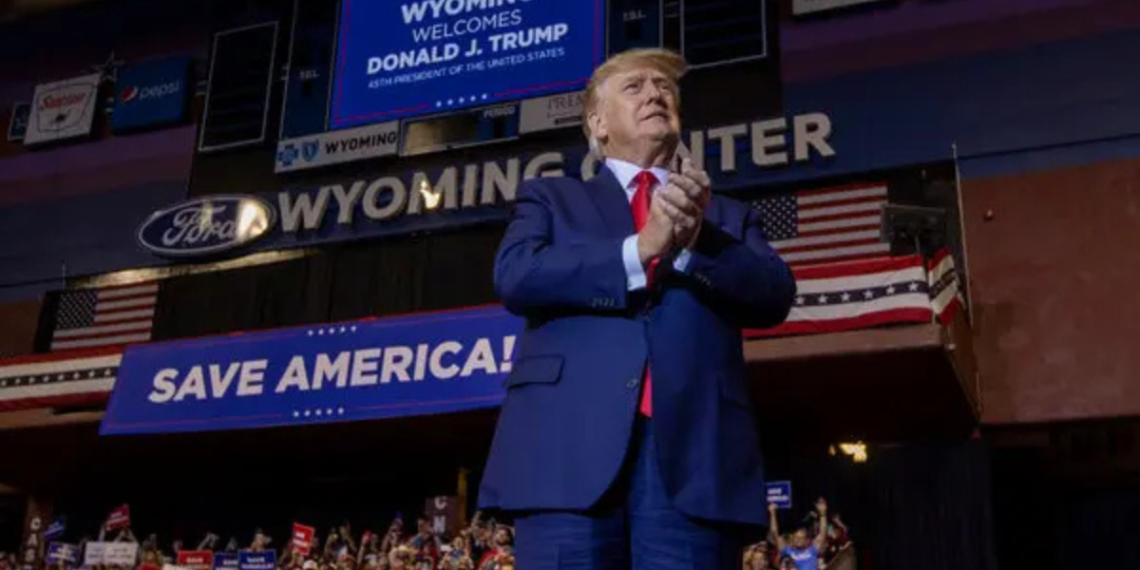India’s Sensex and Nifty indexes stumbled as Trump’s energy policy shake-up cast a shadow over global markets. With renewable energy shares plummeting in the U.S. and fears of reduced Fed cuts, Indian investors are on edge about the potential fallout on tech, finance, and renewable sectors. Key analysts weigh the implications for Indian stocks and the best strategies amid the turbulence.

By PC Bureau
India’s stock market indices, Sensex and Nifty, saw sharp losses on Thursday, falling over 1%, effectively wiping out the previous session’s gains on the “Trump trade.” Stocks faltered amid concerns over high valuations, weak Q2 earnings, and the prospect of fewer Federal Reserve rate cuts, as Trump’s win stoked fears of tighter fiscal policies.
The downbeat mood was mirrored on Wall Street, where a wave of bearish sentiment hit following Trump’s declaration to end renewable energy projects on “day one.”
His pledge sent shockwaves through the industry, plummeting renewable stocks: Offshore wind developer Orsted fell 14%, while Vestas and Nordex lost 11% and 7.5%, respectively. Trump’s strong rhetoric against offshore wind farms and clean energy raised investor concerns that federal support for renewables may vanish.
In India, the BSE Sensex dropped by 848 points to 79,529.65, with banks like ICICI Bank and HDFC Bank, along with Reliance and Infosys, among the heaviest decliners. The Nifty fell 276 points to 24,208. Analysts suggested that Trump’s corporate tax cuts could benefit Indian IT, but they warned that rising US deficits, tariff inflation, and a potential “America First” outsourcing clampdown could offset any positives.
Kotak Securities pointed to contradictions in the Trump trade, noting that while tax cuts may boost US corporate spending on Indian IT services, protectionist measures and anti-ESG stances could dampen India’s renewable exports.
Also Read: SC Strikes Down Compromise in Sexual Harassment Case
Economic analysts at Nomura warned that tariffs and tax policy will likely be Trump’s early economic focus, projecting that these could be inflationary while also hitting growth. A muted outlook for Fed rate cuts amid inflation concerns only adds to the uncertainty.
Renewable energy stocks bore the brunt, with many fearing that Trump’s stance on fossil fuels over renewables would reverse Biden-era incentives critical to the sector. His softened stance on electric vehicles (EVs), following Tesla CEO Elon Musk’s endorsement, was also surprising, though Trump maintains that EVs are suitable for only a small portion of the population.
Donald Trump’s latest pledge to end renewable energy projects isn’t his first clash with the sector. Previously, he argued that solar panels required vast, desert-like areas to be effective. However, data from the Solar Energy Industries Association shows that most utility-scale solar operations today occupy less than 600,000 acres, much less than Trump implied.
If Trump follows through, the renewable energy sector could face significant setbacks. He has suggested cutting tax credits that have been crucial to the industry’s growth, along with dismantling environmental regulations set under the Biden administration, which would allow fossil fuel companies to expand more freely. This approach would sharply shift U.S. energy policy, giving priority to fossil fuels over renewables.
Trump has also vowed to end the electric vehicle (EV) mandate, raising questions about the future of the EV industry and its supporting infrastructure. Interestingly, his stance on EVs has evolved: last December, he stated on social media that EV supporters should “rot in hell.” But after securing an endorsement from Tesla CEO Elon Musk, Trump has softened his position, now supporting EVs for a “small slice” of drivers. At a recent rally, he even admitted, “I’m for electric cars—I have to be, because Elon endorsed me.” This reversal stands in stark contrast to his previous criticisms, which branded EVs a “hoax.”
The feasibility of Trump’s plans depends on several factors, including congressional cooperation and potential resistance from states, businesses, and activists. Still, his policy stance has already rattled renewable energy investors. Solar stocks are slipping as fears grow that another Trump presidency could roll back the Inflation Reduction Act—a key piece of legislation that has fueled the renewable energy boom by offering tax incentives to boost solar power production. As this uncertainty lingers, the future of clean energy in the U.S. remains in question.










